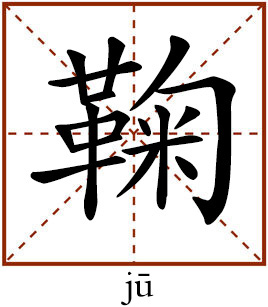Cuju

Identified as the earliest form of football, Chinese cuju has a history of over 2,300 years. During its long period of evolution, cuju served both as a game for entertainment and competition as well as a sport for military training.
蹴鞠
cù jū
Cu means “to kick” or “to tread.” Ju refers to a leather ball stuffed with feathers, furs or rice chaffs. The word “cuju” is first seen in the Records of the Grand Historian by Sima Qian in the Han Dynasty, according to which, Xiang Chu, a local lord, was obsessed with cuju and the doctor advised against playing when he was sick. He ignored doctor’s advice and eventually died when indulging himself in the game.
Cuju originated in the capital city of Qi Kingdom, Linzi in Zibo of present-day Shandong Province. Cuju was a popular form of entertainment during the Warring States Period. Cuju gained more performance and competitive features in the Han Dynasty. It was in this period that cuju began to be used to train soldiers. According to the Additional Records by Liu Xiang, cuju, in addition to signifying the state of military affairs and training soldiers, can also enrich the atmosphere of military camps and maintain troop morale.
Cuju was most developed in the Tang and Song dynasties. There were cuju clubs as well as cuju artists. The rules, fields and facilities for cuju became more advanced. For example, balls inflated with air and cuju goals emerged during this period. It was also during this age that cuju gradually spread worldwide.
Cuju was used for shows during festivals and celebrations at court during the Liao, Jin and Yuan dynasties. Cuju remained popular in the Ming Dynasty. However, it was forbidden among soldiers from the very beginning of the Ming Dynasty. Records about cuju declined drastically in the Qing Dynasty. There is no doubt that the Manchu people associated cuju with skating, creating the ice-cuju sport. After the middle Qing Dynasty when the modern football game was introduced from Western countries, traditional cuju gradually declined and was replaced by football.
(edited by CHEN ALONG)
